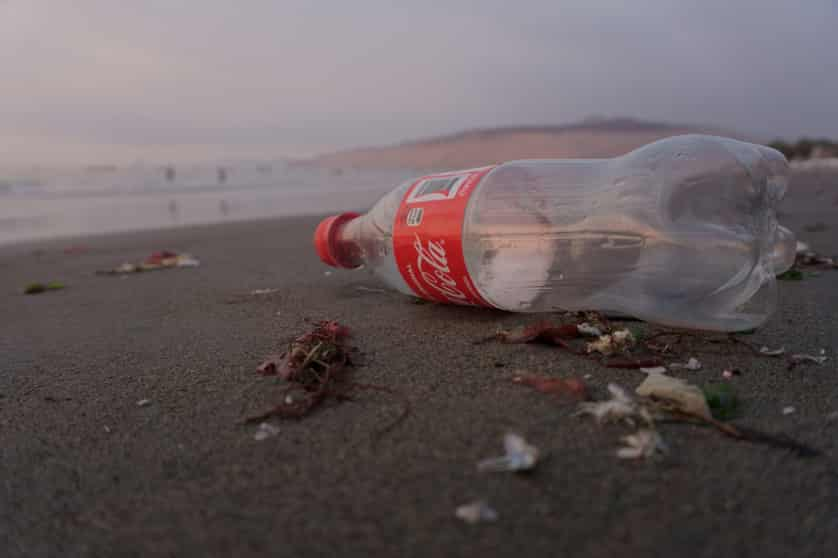The start of the year saw plastic bags banished from 75 leading retailers in Thailand. By 2021 there will be a total plastic bag ban in the country and there are further plans in place to reduce plastic consumption due to Thailand being the 6th worse plastic polluter in the world. So when you’re shopping for goods in Chiang Mai and going about your everyday activities in the city, it’s crucial that you cut your plastic consumption as much as possible.
Say no to plastic bags
The average person in Thailand uses 8 plastic bags each day, according to Less Plastic. Most of the time, these bags are used once and are then discarded and left to pollute the ocean and landfills. There are plenty of ways to carry your shopping and belongings without turning to a single-use plastic bag, though. While reusable bags are a good alternative, research shows that the average reusable cotton tote bag needs to be used more than 7,000 times before its impact on the environment outweighs the effect that a single-use plastic bag would have. Due to this, shoppers in Thailand have turned up at stores with some unique alternative carriers that have included sacks, vases, wheelbarrows, and clothes hangers.
It’s also important that you say no to plastic bags when purchasing goods. This is especially the case when you’re shopping in smaller stores in and around Chiang Mai that aren’t yet bound by the plastic bag ban. It’s common practice in many stores for all items to be individually wrapped, so it’s essential that you step in and limit the amount of plastic packaging that you’re being given.
Invest in reusable takeaway containers
8% of all the plastic waste in Thailand’s seas is from plastic food containers, reports The Bangkok Post. Street food in Chiang Mai is a favorite among locals and tourists but the food is always handed out in disposable plastic containers. Similarly, snacks from bakeries and similar stores are always placed in plastic bags. If you plan on grabbing a bite to eat when out and about in Chiang Mai, then it’s best to take your own reusable food containers and storage boxes to keep the food in. Then you can clean it out when you get home and pack it in your bag ready for your next meal out.
Avoid single-use cups & bottles
Plastic bottles account for 18% of sea pollution in Thailand, while plastic bottle caps make up 3%. As plastic bottles don’t biodegrade they pollute the environment forever and harm wildlife and sea life. Thankfully, the Thai government plans to ban plastic cups and small plastic bottles by 2022. But there are things you can and should be doing now to limit the impact these plastics have on the environment. When heading out in Chiang Mai always take a reusable cup and bottle with you and request that any drinks your order are placed in them. Places such as Khunkae’s Juice Bar and Smoothie Blues should happily use your reusable cup when you order a refreshing drink in the city.

Get others on board
There is plenty of evidence to support the theory that Thai people want to be more environmentally-friendly. For example, 87% of people say that they would vote for an environmentally-friendly party in an election. But it’s important to note that many people don’t know how to go green with their plastic use, so it’s important that authoritative parties work to get others on board. A great place to start is in the workplace where large groups of people can team up to change the way they all use plastic. For this reason, local businesses in Chiang Mai have a crucial role to play in reducing plastic consumption in working environments. Things that can be done include encouraging recycling at all times, auditing your waste, offering incentives to employees that make the biggest changes, and employing eco-friendly cleaners over non-environmentally-friendly ones. By changing the habits of people in the workplace, these individuals are more likely to adopt similar measures in everyday life and their overall plastic consumption should reduce as a result.
Recycle as much as possible
By 2027, the Thailand government plans to use 100% recycled plastics. However, at present, less than 25% of all domestic waste produced in the country is recycled, so people really need to get on board with recycling to help the government to meet its ambitious goal. The good news is that services are cropping up across Chiang Mai and Thailand that encourage households and local businesses to recycle. Startup GEPP allows users in Chiang Mai to arrange a recycling collection via a simple app. In doing so, there’s even the possibility of making some cash as recyclables can be sold for a profit. Another step you can take to help is to separate all of your recycling from general household waste to prevent cross-contamination at recycling plants.
Plastic consumption is a big problem in Chiang Mai, Thailand, and the rest of the world. So, it’s crucial that action is taken to limit the amount of it that’s being dumped by the nation. While the plastic bag ban is a step in the right direction, it’s down to individuals in Chiang Mai, as well as local businesses, to take further steps to limit the impact that these plastics are having on the environment.
